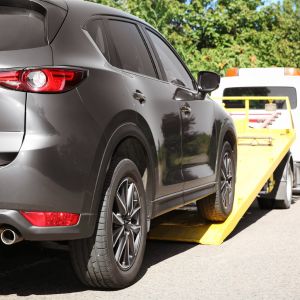When a car breaks down or gets into an accident, it can be a stressful and frustrating experience for any driver. In these situations, a towing company is called to the rescue to transport the vehicle to a repair shop or impound lot. While this service may be necessary, many individuals are left wondering how long a towing company can legally hold onto their car.
This question is particularly relevant in situations where the driver is unable to retrieve their vehicle immediately, such as during a vacation or out-of-town trip. Additionally, the rise of predatory towing practices has raised concerns about the length of time a towing company can keep a car without the owner’s consent. In this article, we will delve into the laws and regulations surrounding this issue and provide you with the necessary information to understand your rights as a car owner.
Whether you’ve recently had your car towed or simply want to be informed about your rights in case of future incidents, this article will examine the various factors that can affect the duration of a towing company’s hold on your vehicle.
Legal limits for vehicle retention

In the context of vehicle towing and impoundment, it is crucial to understand the legal limits governing the duration for which a towing company can retain a car. These limits serve as safeguards to protect the rights of vehicle owners and ensure fair treatment in the event of impoundment. While the specific regulations may vary depending on the jurisdiction, it is generally recognized that towing companies cannot indefinitely hold onto a vehicle without proper justification.
The duration allowed for vehicle retention typically depends on factors such as the reason for impoundment, local laws, and any applicable administrative or legal processes. Vehicle owners should familiarize themselves with their local regulations to ascertain their rights and responsibilities in such situations. By being well-informed, individuals can navigate the process confidently and assert their rights if necessary.
Reasons for vehicle impoundment
Various circumstances can lead to the impoundment of vehicles by towing companies. The reasons for vehicle impoundment can include, but are not limited to, parking violations, expired or suspended driver’s licenses, unpaid traffic tickets, involvement in criminal activities, or abandonment of the vehicle.
Additionally, vehicles may be impounded if they pose a threat to public safety or are involved in accidents. These reasons serve to maintain order on public roads, deter illegal activities, and ensure the safety of the community. Understanding the specific reasons for vehicle impoundment can help individuals prevent such occurrences and avoid the associated inconveniences and costs.
Understanding your rights as owner

As a vehicle owner, it is important to understand your rights in relation to the impoundment of your car by a towing company. While the specific duration that a towing company can keep your car may vary based on local laws and regulations, it is generally important to note that towing companies cannot keep your car indefinitely without legal justification.
It is crucial to familiarize yourself with the laws and regulations specific to your jurisdiction to ensure that your rights as a vehicle owner are protected. In the event that your vehicle is impounded, it is advisable to promptly contact the towing company and local authorities to understand the necessary steps and requirements for its release. By being aware of your rights and taking appropriate action, you can navigate the situation effectively and minimize any potential inconveniences.
Steps to retrieve your vehicle
To retrieve your vehicle from a towing company, it is essential to follow the proper steps outlined by the company and local authorities. Firstly, contact the towing company as soon as possible to gather information about the impoundment, including the location, fees, and necessary documentation.
Provide them with the required details, such as the vehicle’s registration, proof of ownership, and identification. Make sure to inquire about any outstanding payments or violations that need to be resolved before the vehicle can be released. Once all the necessary paperwork is gathered, schedule a time to visit the impound lot and bring along the required fees for towing and storage.
It is important to note that failure to retrieve the vehicle within the designated time frame may result in additional charges. Therefore, it is crucial to act promptly and efficiently to secure the release of your vehicle from the towing company.
Avoiding future towing incidents

To prevent future towing incidents and the potential inconvenience and expense they entail, there are several proactive measures you can take. Firstly, make sure to follow all parking regulations and signage to avoid parking in restricted areas.
Be mindful of time limits, permit requirements, and any other restrictions specific to the location where you are parking. Additionally, it is important to regularly inspect and maintain your vehicle to minimize the chances of a breakdown or mechanical failure that could lead to a necessary tow. Routine maintenance such as checking tire pressure, monitoring fluid levels, and addressing any warning lights or unusual noises can help prevent unexpected vehicle issues while on the road.
Lastly, if you find yourself in a situation where your vehicle needs to be parked for an extended period, consider utilizing secure parking facilities or garages to reduce the risk of it being towed. Taking these precautions will not only help you avoid the hassle of dealing with a towing company but also ensure the safety and proper care of your vehicle.
FAQs about towing company
What are the legal limits for how long a towing company can keep your car before they have to release it?
The legal limits for how long a towing company can keep your car before they have to release it vary depending on the jurisdiction. In some places, there may be specific time limits set by local laws or regulations, while in others, it may be determined by factors such as the reason for the tow or the policies of the towing company itself.
It is important to check the laws and regulations in your specific area to determine the maximum period a towing company can hold your car before they are required to release it.
Are there any circumstances in which a towing company can keep your car indefinitely?
No, a towing company cannot keep your car indefinitely under normal circumstances. Towing companies are typically required to follow specific regulations and laws regarding the storage and release of vehicles. If your car has been towed, you have the right to retrieve it once you have paid the necessary fees or resolved any outstanding issues. However, there may be exceptional circumstances such as legal disputes or police investigations that could potentially prolong the storage period. In such cases, it is advisable to seek legal advice to understand your rights and options.
Conclusion
The length of time a towing company can keep your car varies depending on state and local laws, as well as the specific circumstances of your situation. It is important to familiarize yourself with these laws and to always carefully read any contracts or agreements before entrusting your vehicle to a towing company.
In the event that your car is towed, it is best to act quickly and communicate clearly with the towing company to resolve the situation in a timely and satisfactory manner. By understanding your rights and responsibilities, you can ensure a smoother experience in the unfortunate event of your car being towed.

